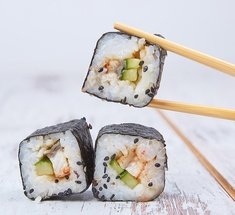Featured Quizzes
User Quizzes
Create Quiz
Data and Charts
Badges and Games
About JetPunk
JetPunk Shop
Dark Mode

Foods by Country of Origin #1
Try to name the countries where these foods originated.
Answer must correspond to the highlighted box
Each answer is used only once
Rate:
Featured Quiz
Last updated: October 20, 2022
You have not attempted this quiz yet.
More quiz info >>
| First submitted | September 19, 2010 |
| Times taken | 281,753 |
| Average score | 62.5% |
| Rating | 4.37 |
4:00
Enter country here:
0
/ 24 guessed
Time Used
00:00
Best Time
00:00
The quiz is paused. You have remaining.
Scoring
You scored / = %
This beats or equals
% of test takers
also scored 100%
The average score is
Your high score is
Your fastest time is
Keep scrolling down for answers and more stats ...
|
|
|
New and Popular
Save Your Progress
Copyright H Brothers Inc, 2008–2024
Contact Us | Go To Top | View Mobile Site

I looked it up and the bil indeed stands for butt (area where the meat comes from) but tong has nothing to do with a real tongue and just refers to it being a strip of meat.
btw the word first reminded me of bintang, so i tried indonesia in the quiz :D
The thing that we (sometimes) call gyro originally comes from the Ottoman Empire, and then made its way around the world, in some places via Greece and in others not.
However "gyro" as the *name* for the thing is actually an American development, yes (even though the word is of Greek origin). The Greeks continued to call them "ντονέρ" (a cognate with the Turkish "döner") until tensions between Greece and Turkey reached a height in the 1970s, at which point the Greek word "ντονέρ" fell out of favour as being "too Turkish" and the word "γύρος" was backported from the USA into Greece as being a more properly "Greek" term.
So you could make a plausible claim that the gyro is either American or Turkish (Ottoman). But of those three options, Greek is probably the least correct.
Clam chowder ?
Why does it exist ? Is it edible ? If yes, is it good ? And again, WHYYY ?
(sorry, I know it's probably okay, but idk, just hearing/seeing the name makes my skin crawl for some reason.
So I'm really curious.)
2: Never heard of PUPUSA. I doubt that anybody who is not from El Salvador (or perhaps the southern parts of the US) has either.
3: VEGEMITE isnt food. It's Australia's way of disposing of toxic waste
Indeed I just happen to have most recently had one about 6 days ago - purely coincidentally.
I've never been to El Salvador nor is my ancestry in any way related to that part of the world (so I've never had any reason to e.g.: seek them out, particularly). But they've definitely been common enough in my experience...
That's a bit like adding the favourite food of Togo
But as a western european it might be easier than for others
In any case, it's a good quiz.
Search before answer.
https://en.wikipedia.org/wiki/Viennoiserie